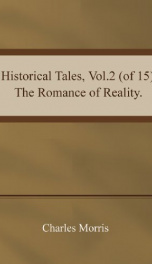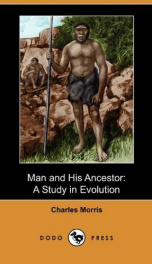Historical Tales, Vol. 2 (of 15)

A golden Easter day was that of the far-away year 1513, when a smallfleet of Spanish ships, sailing westward from the green Bahamas, firstcame in sight of a flower-lined shore, rising above the blue Atlanticwaves, and seeming to smile a welcome as the mariners gazed with eyes ofjoy and hope on the inviting arcades of its verdant forest depths. Neverhad the eyes of white men beheld this land of beauty before. Englishships had sailed along the coast to the north, finding much of it bleakand uninviting. The caravels of Columbus had threaded the glowing lineof tropic isles, and later ships had borne settlers to these lands ofpromise. But the rich southlands of the continent had never before beenseen, and well was this unknown realm of beauty named Florida by theSpanish chief, whether by this name he meant to call it the "land offlowers" or referred to the Spanish name for Easter, Pascua Florida.However that be, he was the first of the discoverers to set foot on thesoil of the great coming republic of the United States, and it is ofinterest that this was done within the domain of the sunny South.The weight of half a century of years lay upon the shoulders of JuanPonce de Leon, the discoverer, but warm hope burned in his heart, thatof winning renewed boyhood and youthful strength, for it was a magicvision that drew him to these new shores, in whose depths he felt surethe realm of enchantment lay. Somewhere amid those green copses or alongthose liquid streams, he had been told, a living fountain sprang upclear and sparkling from the earth, its waters of such a marvellousquality that whoever should bathe in them would feel new life coursingthrough his veins and the vigor of youth bounding along his limbs. Itwas the Fountain of Youth he sought, that fabled fountain of which menhad dreamed for centuries, and which was thought to lie somewhere ineastern Asia. Might not its waters upspring in this new land, whosediscovery was the great marvel of the age, and which men looked upon asthe unknown east of Asia? Such was the new-comer's dream.Ponce de Leon was a soldier and cavalier of Spain in those days whenSpain stood first among the nations of Europe, first in strength andenterprise and daring. Brave as the bravest, he had fought withdistinguished courage against the Moors of Granada at the time whenColumbus was setting out on his famous voyage over the unknown seas ofthe West. Drawn by the fame of the discovery of the New World, De Leonsailed with Columbus in his second voyage, and proved himself a gallantsoldier in the wars for the conquest of Hispaniola, of whose easternhalf he was made governor.
Info about the book
Author:
Series:
Unknown
ASIN:
B004TQ69CE
Rating:
4/5 (5)Your rating:
0/5
Languge:
English
Users who have this book
Users who want this book
What readers are saying
What do you think? Write your own comment on this book!
write a commentif you like Historical Tales, Vol. 2 (of 15) try:
Other books by this author
Do you want to read a book that interests you? It’s EASY!
Create an account and send a request for reading to other users on the Webpage of the book!



